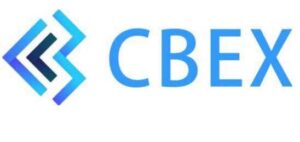Leaked Documents Reveal Company Behind Importation of Dirty Fuel into Nigeria

Confidential documents and interviews have exposed how Nigeria, Africa’s largest oil producer, has been importing substandard petroleum products from Malta, a country without oil refineries.
The leaked files, obtained by BusinessDay, outline a complex scheme where low-quality petrol from Russia is blended in Malta before being shipped to Nigeria. One of the documents implicates Matrix Energy, a company with both upstream and downstream operations, in importing and distributing these blended, low-grade petroleum products in Nigeria.
Matrix Energy owns a 150-million-liter capacity depot in Warri, along with three ships and around 600 trucks. A senior source involved in the shipping business confirmed that Matrix Energy actively imports Russian products through various blending locations.
Ownership of Matrix Energy
Matrix Energy Group is owned by Abdulkabir Aliu, who also serves as the Group Managing Director. The company’s executive team includes Luqman Salam-Alada, Aisha Said-Aliu, and other key figures overseeing retail, support services, and fertilizer operations.
Russian Connection
Shipping data reveals that Matrix vessels have been transporting off-spec (low-quality) fuel products from Russia. On June 16, 2024, 15,000 tons of petroleum were transferred to Matrix’s vessel, ‘Matrix Triumph,’ which then discharged the cargo at the Matrix Jetty in Warri.Experts have raised concerns about the health and safety risks associated with these imports. The diesel from Russia is often of poor quality, and in this case, there was no correction before distribution in Nigeria. This dirty fuel is sold to the Nigerian market, where it poses significant risks to vehicles and public health.
House of Reps’ Findings
During a visit to the Dangote Refinery in July 2024, the House of Representatives tested diesel from Matrix filling stations and found sulfur levels significantly higher than the legal limit. The results showed 2,653ppm sulfur concentration in Matrix Retail diesel, compared to the required 50ppm.This finding has sparked calls for stricter regulation of Nigeria’s midstream and downstream sectors. Energy expert Kelvin Emmanuel emphasized the need for immediate action against those responsible for allowing these substandard products into the country.
Pinnacle Oil and Gas Involvement
Leaked reports also suggest that Pinnacle Oil and Gas FZE, whose terminal received petroleum products from Malta, played a role in this scheme. Although the products were not for Pinnacle, but for NNPC Retail, the terminal was used to facilitate the import of these low-quality fuels.
Widespread Implications
Investigation revealed that over 200,000 tons of gasoline from Malta were discharged into Matrix Energy’s depot in July 2024. This represents about 25% of Nigeria’s monthly PMS consumption.
Further findings indicate that Malta has become a hub for blending and transshipping sanctioned Russian oil and petroleum products, which are then sold to unsuspecting Nigerian consumers. These poor-quality fuels not only damage vehicles but also have severe environmental and health impacts.
Impact on Public Health
A report by Stakeholder Democracy Network (SDN) highlights the dangers posed by the importation of substandard fuel into Nigeria. The organization’s research found that poor-quality fuel significantly reduces life expectancy in the Niger Delta, where air pollution has become a major public health issue.
SDN’s findings also revealed that weak regulations allow international traders and Nigerian marketers to exploit the system, bringing in low-quality fuels that harm the environment and public health. The organization has called for urgent improvements in fuel quality standards and regulatory enforcement.





